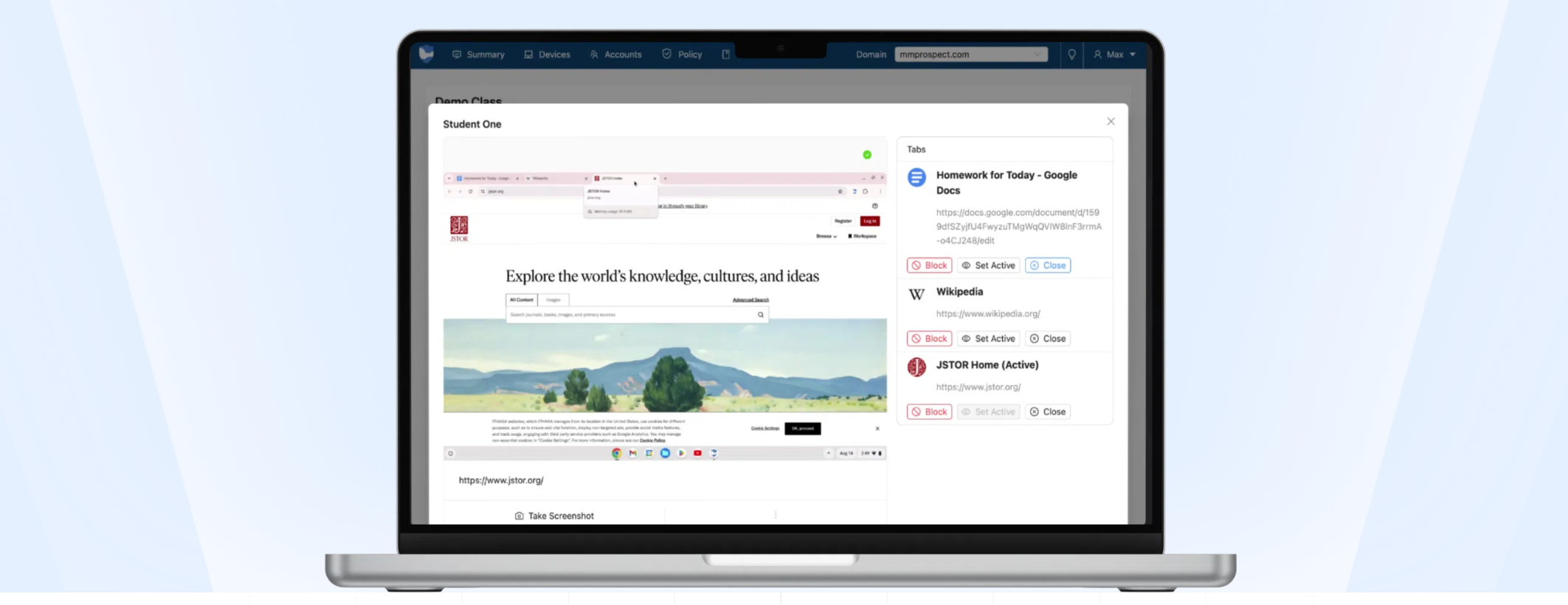Bringing a 1:1 iPad program to China
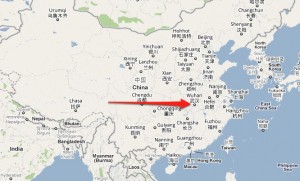
Tools and ideas to transform education. Sign up below.
You are now subscribed
Your newsletter sign-up was successful
I am in Wuhan China... Don't know off the top of your head where that is? Take a look at the map below. It is on the same latitude as Jacksonville, Florida where I live...just on the other side of the globe...
I have traveled with Michael Fisher, a fellow Curriculum21 faculty member, to visit Stephen Wilmarth, contributing author to Heidi Hayes Jacobs' book Curriculum21 and Program Director of the International Experimental Class of the Number 1 Middle School attached to Central China Normal University in Wuhan, China.
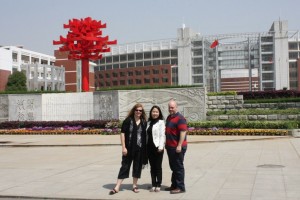
The school's name is misleading for us in the USA, since it is a High School serving 3 grade levels (Grades 10, 11 & 12). It serves over 5000 students. The International Experimental class is similar to an academy within the school. About 50 students, all focused on learning English, American history and culture in order to prepare for the TOEFL (Test Of English as a Foreign Language) and the SAT, in order to get accepted to top Universities in the USA. These students do not take the Gao Kao, the Chinese College entry exam.
Take a read of the NY Times article titled "China's College Entry Test- Gao Kao is a National Obsession" to gain a better understanding of the motivation, perseverance, determination, fear, stress, and pressure for Chinese students to be admitted into universities.
The past week, we have spent in Wuhan, observing and talking to students and faculty, the pressure described well in the above mentioned NY Times article is obvious and can be felt even by us foreigners. The pressure to perform well on these everything-determining exams is what drives ALL decision making.
Chinese students study over 14 hours a day in an educational system that is known for rote memorization, lectures, test taking and conformity. In a system that seems to value "training" above "education", Stephen Wilmarth has taken on the challenge to start defying this perception that most Westerners hold of Chinese students. A perception which paints a picture of students being only good test takers, but not for being creative nor possessing critical thinking and problem solving skills.
He wants to break his students out of the mold and allow them to reach beyond this perception and prepare them to be admitted and study in the USA. Steve has chosen iPads as the vehicle to help him accomplish just that.
You HAVE to take the Chinese cultural background (history as well as current realities...think Great (Fire) Wall of China) into consideration to be able to realize the immense undertaking of this program of bringing a 1:1 iPad program into a Chinese Public school.
Tools and ideas to transform education. Sign up below.
This background includes teacher-student respect in addition to the immense pressure of passing (with top scores) their exams in order to not loose face nor bring dishonor to their families . Teachers stand in front of the class, often on a physical stage and lecture. Students take notes, memorize and are expected to stand up to answer questions and/or recite in unison. Classes have mostly over 50 students in small physical space. The one-child policy in China also plays a pivotal role in the education equation. Parents are heavily involved and want and expect top quality educational opportunities for their children.
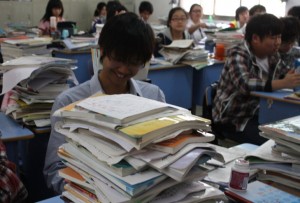
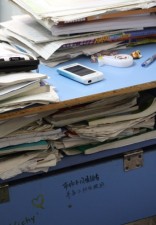
Steve is creating a model for other Chinese schools to bring technology into the classroom and into the hands of students that for the first time in Chinese history is re-aligning where information comes from.
- from rote-memorization to critical thinking...
- from reciting disconnected facts to connecting and remixing content...
- from individual test scores to a collaborative and a participatory culture ...
- from consumption to production...
- from transmitting information to transforming information...
- from handed- in written communication to presentations in multiple media forms...
- from multiple choice to multiple modalities...
- from a paper-based classroom to paper-less learning community...
- from ethnocentrism to global awareness
The goal of the program is to give students the skills to take control of their own learning.
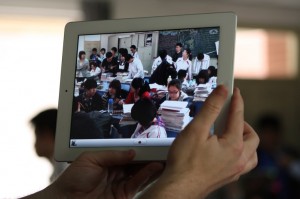
Having the iPad at their fingertips to store, organize and retrieve information anytime and anywhere IS a game changer...
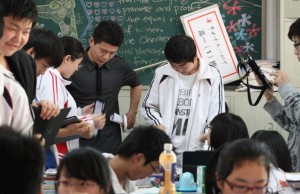
Using the iPads to encourage collaborative work...IS a game changer...
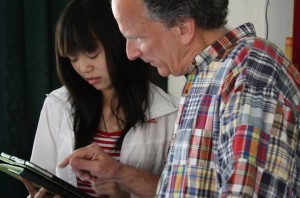
Using the iPads to negotiate meaning that support critical thinking and problem solving skills IS a game changer.
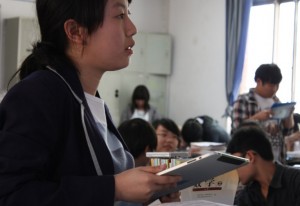
Using iPads to support communication and presentation skills IS a game changer...
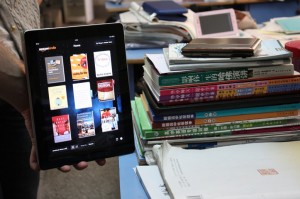
Using the iPads to replace expensive printed content and text books IS a game changer...
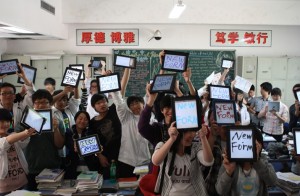
Take a listen to an interview, Mike and I recorded, with Lara Zhang, co-teacher in the International Experimental Class.
audio:http://www.langwitches.org/podcast/episodes/C21-11.mp3
